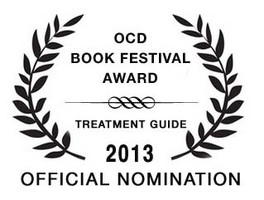
Panic Disorder with or without Agoraphobia
Symptoms of Panic Disorder:
Individuals have a history of panic attacks as well as persistent anxiety about future panic attacks and the consequences. Often, avoidance of situations or places (Agoraphobia) occurs and daily activities are modified due to the fears of further panic attacks. A panic attack is defined as a discrete period of intense fear with four or more of the following symptoms:
- shortness of breath
- numbness
- choking sensation
- nausea
- chest pain
- sweating
- shaking
- rapid heartbeat
- dizziness
- hot flashes or chills
- feeling detached
- fear of dying or going crazy or out of control
Treatment of Panic Disorder:
Effective treatment for panic disorder with or without agoraphobia involves cognitive-behavioral therapy (CBT) and the development of effective coping tools. CBT involves cognitive restructuring, which allows one to learn to challenge distressing thoughts about having panic attacks and other fears. CBT also involves exposure therapy to learn to approach anxiety-provoking social situations to reduce anxiety and avoidance. Exposure therapy involves facing actual situations as well as imagined situations (e.g., imaginal exposures). These situations are approached based on least-to-most distressing order and in a systematic, organized manner. Interoceptive exposure is taught to reduce sensitivity and fears related to the bodily sensations. Exposure therapy and other cognitive behavioral goals help reduce the frequency and intensity of panic attacks, while decreasing avoidance and modifications in daily activities.
Examples of therapy goals for Panic Disorder with or without Agoraphobia include:
- Reducing avoidance behaviors.
- Exposure therapy to learn to approach feared situations, including interoceptive exposure/desensitization.
- Cognitive therapy to replace exaggerated, fearful thinking with more realistic and healthy thinking.
- Changing the way you think and behave in order to decrease ongoing apprehension and worry.
- Learning to reduce the bodily sensations of anxiety and panic attacks.
- Reducing and relieving anxiety before it turns into a full-blown panic attack.
- Identifying and understanding the nature of panic and anxiety.
- Step-by-step coping tools and problem-solving strategies.
- Learning ways to change your thinking and behaving to limit avoidance and negative thinking.
- Relapse prevention strategies.



